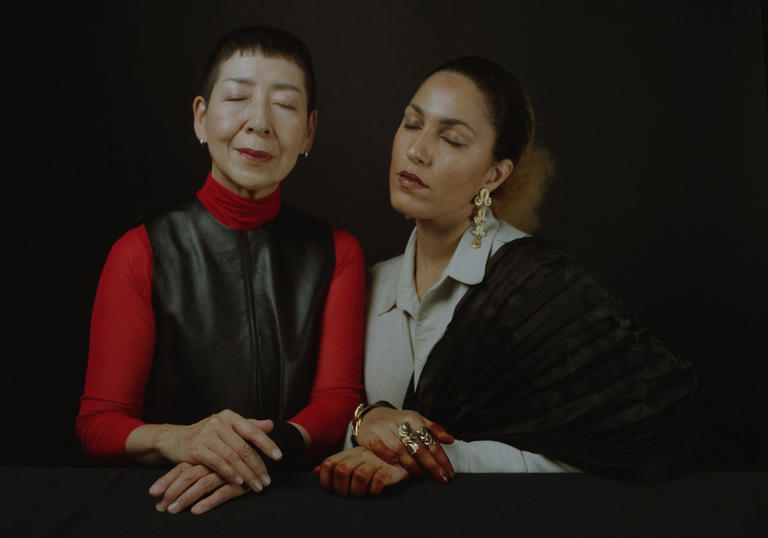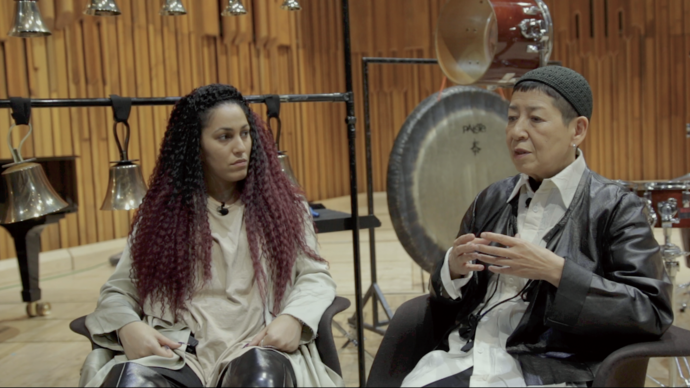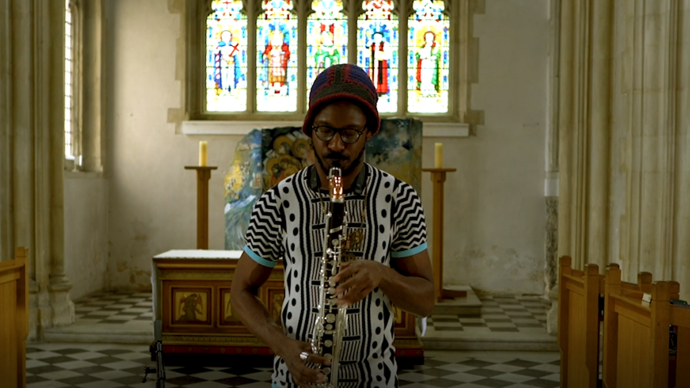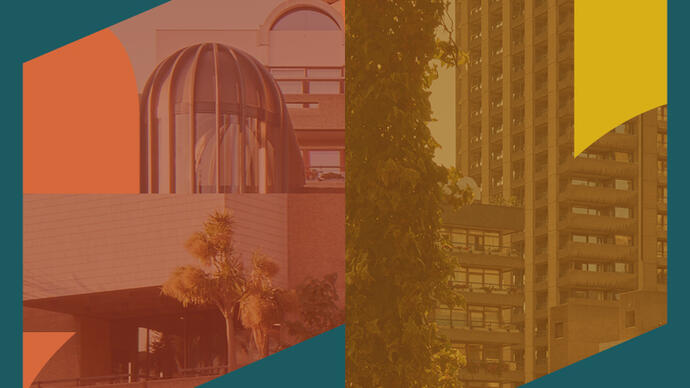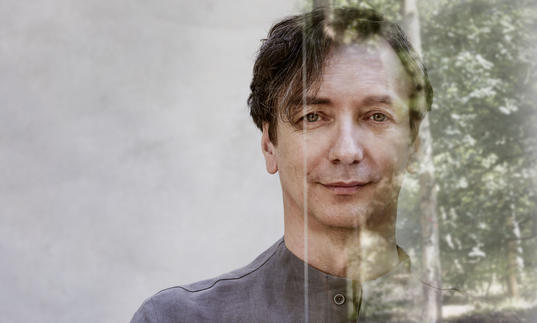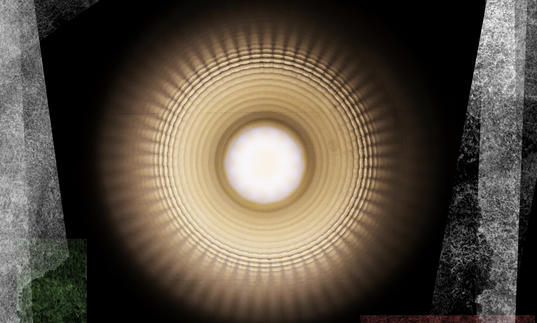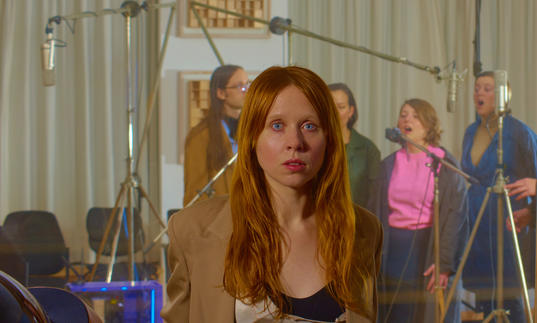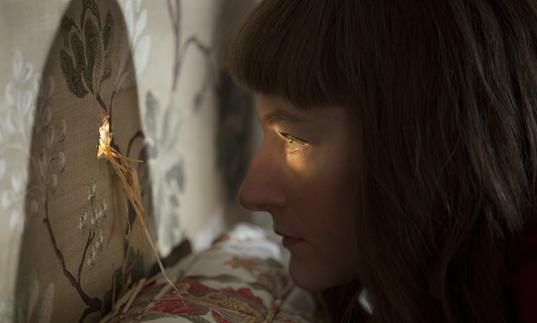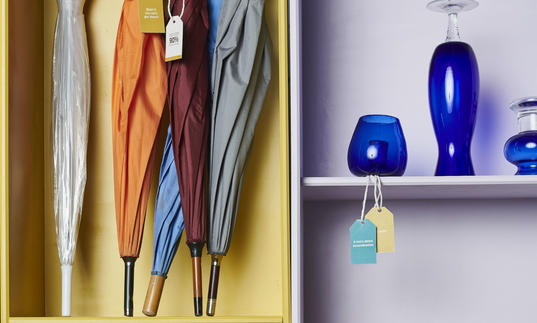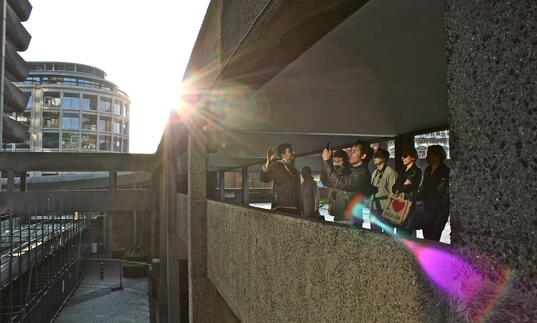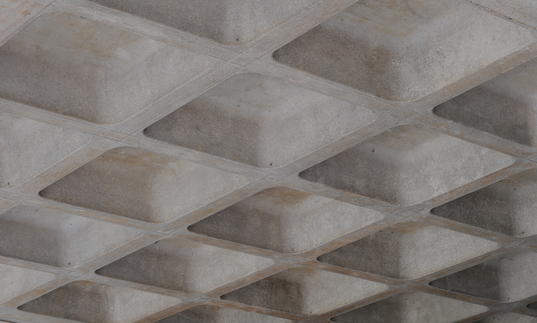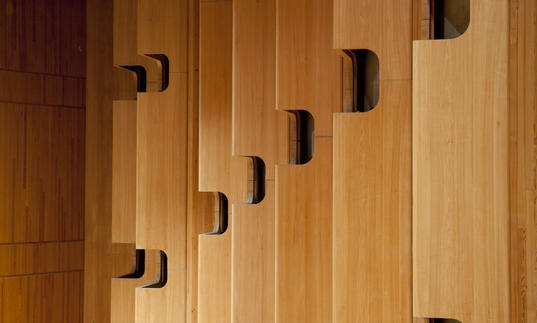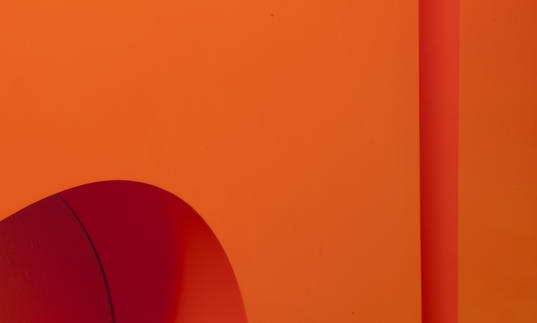At the heart of the work is Le Renard Bleu (the blue fox), a cross-disciplinary collaboration between Japanese minimalist composer and percussionist, Midori Takada and devotional pop polymath, Lafawndah. It saw them collaborate with creative partnership Partel Oliva to produce a twenty-minute film encompassing music, theatre, choreography and images.
Le Renard Bleu was the first new music released by Takada in two decades. True to their global outlooks (both geographically and creatively), for Ceremonial Blue they’ve expanded and transformed it.
‘I hope Ceremonial Blue will be a ceremonial rise above the differences of tradition, religion, and culture,’ says Takada.
Lafawndah explains that the disciplines and the people involved are ‘an extension of what Midori and I already do, have been inspired by and have been involved with. Dance, percussions, devotional chants. It makes total sense and it is an immense honour to be able to make those connections visible and tangible with this piece’.
After graduating from Tokyo University of the Arts, the percussionist made her debut with the Berlin RIAS Symphonie-Orchester in the mid-70s. It was not long before she turned away from the Western tradition and began a lifelong fascination with African drumming, Asian music and Indonesian gamelan.
‘People say it’s poor, but from very few materials, they produce rich sounds just using their body and hands,’ she told the New York Times recently. ‘How to make a worldly sound with your body and with simple materials was an important thing to me.’
Pursuing this passion, Takada formed Mkwaju Ensemble in 1981, a three-piece percussion group that released two records that year before disbanding. Both Mkwaju and Ki-Motion (available as reissues) are well worth hearing as examples of Takada’s early work.
In 1983 she released her debut solo album, Through the Looking Glass. She went on to release only one other solo record: Tree of Life in 1999, alongside a handful of joint releases.
‘After recording Through the Looking Glass, I knew that my music was not popular, so there was no offer to make a new one,’ she recalled.
When Swiss label WRWTFWW and New York’s Palto Flats teamed up to reissue it, it became Discogs’ second biggest-selling record of 2017. The work had transcended national borders and was embraced by a new generation.
There was enormous anticipation, then, when fashion house Kenzo brought Takada and Lafawndah together for Le Renard Bleu.
The years until her rediscovery in the West saw Takada’s career take as broad a scope as her musical world view. As well as writing for film, anime and game soundtracks, she frequently composed and performed music for renowned theatre director Tadashi Suzuki and the Suzuki Company of Toga.
During this time, she immersed herself in the relationship between dance, theatre and music. ‘It was necessary for me to be not only a musician but also an actress who goes on stage,’ she told Dazed and Confused. ‘It was there where I discovered a vehicle where it is possible to create a musical space where “music, body, and space” can unite, which was necessary for me to help elevate my artistry.’
The cross-discipline and pan-global approach is the part of the Venn diagram where Takada intersects with Lafawndah, who uses theatre, situational intervention and choreography to amplify the emotional range of her own forward pop music.
Following her captivating self-titled EP in 2014, Lafawndah has established a reputation for boundary-smashing and pigeonhole-defying creativity. Influences on her debut album Ancestor Boy, released in March, stem from her peripatetic life as a global citizen. Her music is a bracing statement of intent, drawing from a personalised map of influence while resisting both categorisation and easy analysis. Underpinning it all are dramatic and powerful beats, drawing the club, composition, and popular song into thrillingly unresolved, ultramodern erotics. ‘The drums always come first,’ she’s said.
When the pair first met in Tokyo to record Le Renard Bleu, it was a meeting of minds, says Lafawndah. ‘The creative atmosphere was joyous, very clear and a lot of mutual understanding. I learned a lot about intentionality in music during that time.’ She told Vogue, ‘I felt like a daughter and a collaborator and a best friend all at once.’
Programme notes by James Drury
Commissioned and produced by the Barbican
